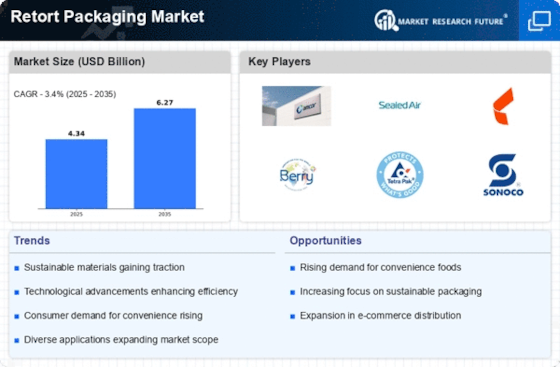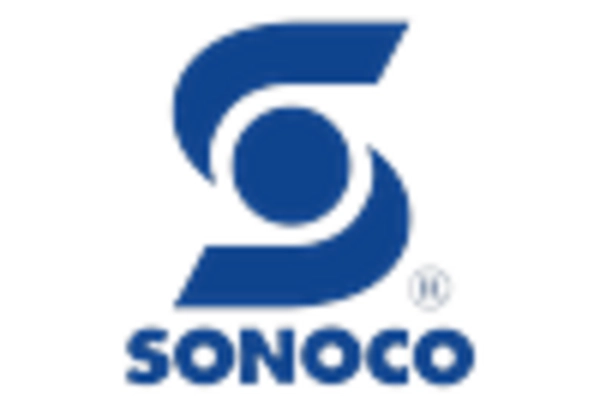Market Share
Retort Packaging Market Share Analysis
In recent years, the way people eat has changed because of positive economic signs such as increased income, shifting preferences, and more stores to buy food. This change is particularly noticeable in developing countries like India, China, and Indonesia, where there is a growing demand for ready-to-eat food. This shift in consumer behavior is expected to drive the growth of the food packaging industry in these regions.
The increase in the global trading of perishable food items like meat, poultry, and seafood is contributing to a higher demand for retort packaging. As people consume more frozen and dried meat, fish, fruits, and vegetables, there is a need for packaging that keeps these items fresh for a longer time. This demand for shelf-stable packaging solutions is a key driver for the growth of retort packaging. Additionally, as people seek non-seasonal fruits and vegetables throughout the year, the demand for such packaging solutions is further amplified.
The changing eating habits and preferences in the Asia-Pacific region have led to the expansion of the packaging industry. This region not only has a thriving market for food and beverages but also a growing number of consumers. This attractiveness has drawn the interest of foreign companies to invest in expanding their facilities and services to meet the region's demands efficiently. The growth of the retort packaging industry in Asia has also caught the attention of key players in the retort packaging market, prompting them to expand their operations in the Asia-Pacific region.
For example, in November 2019, a US-based packaging solutions manufacturer called Constantia Flexibles opened the world's first plant designed to produce more sustainable and recyclable flexible packaging in India, specifically in Gujarat. This move reflects the company's commitment to environmentally friendly packaging solutions. Similarly, in June 2018, Sealed Air, a global company, entered into an agreement with Kuraray America, Inc., a Japanese chemical company. This collaboration aimed to provide food packaging materials derived from Plantic bio-based resins, showcasing the international partnerships that contribute to the growth of the packaging industry in the Asia-Pacific region.


















Leave a Comment